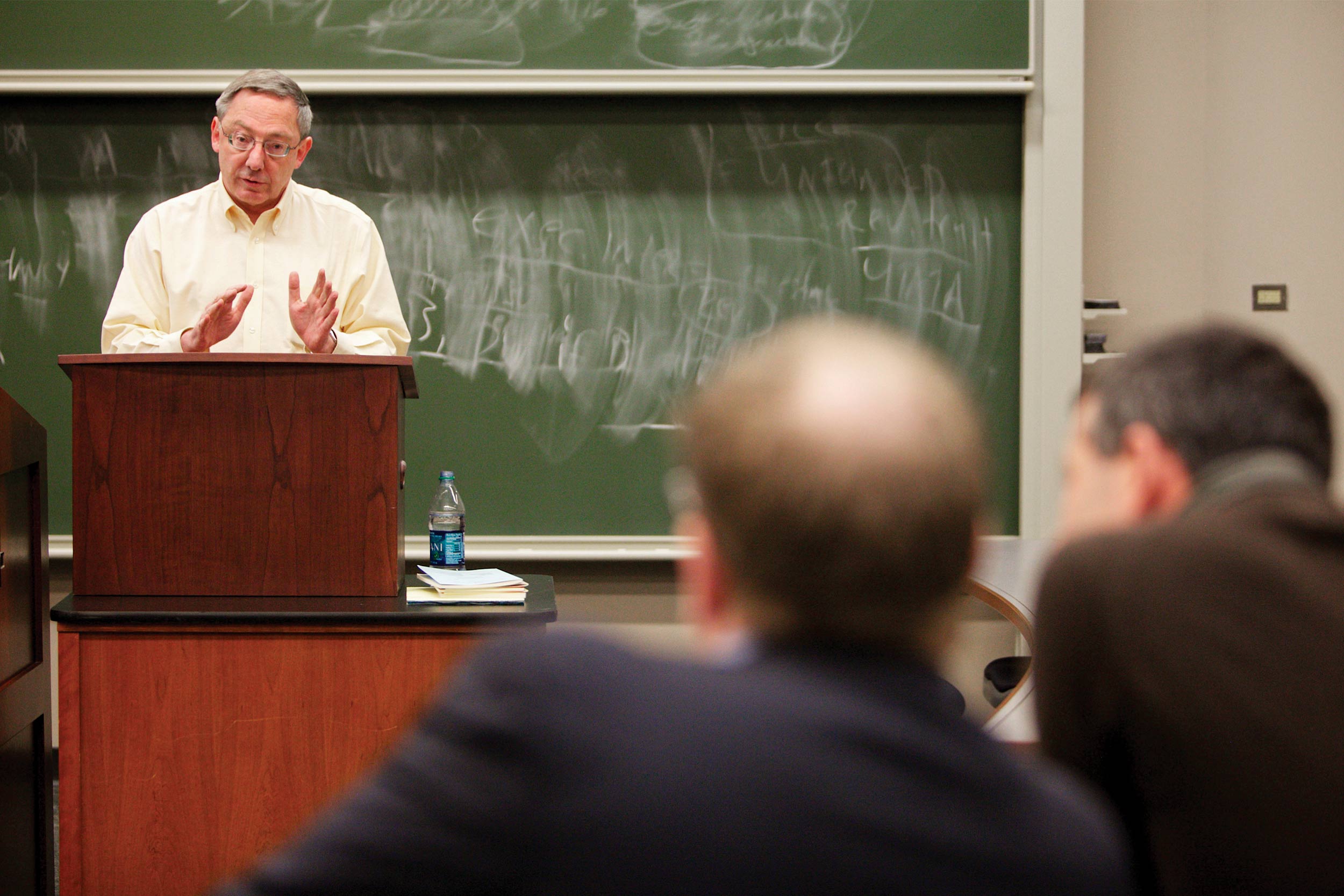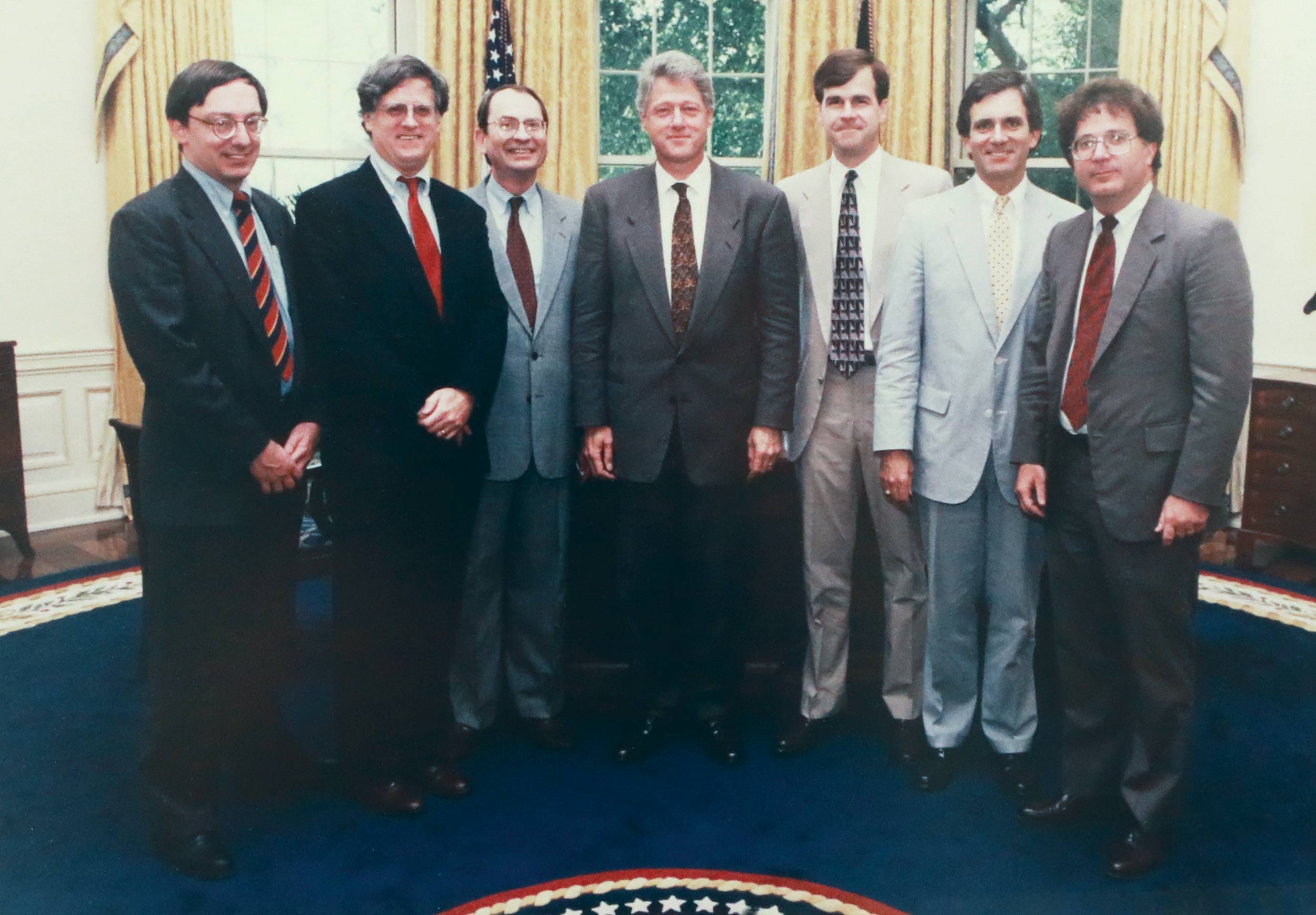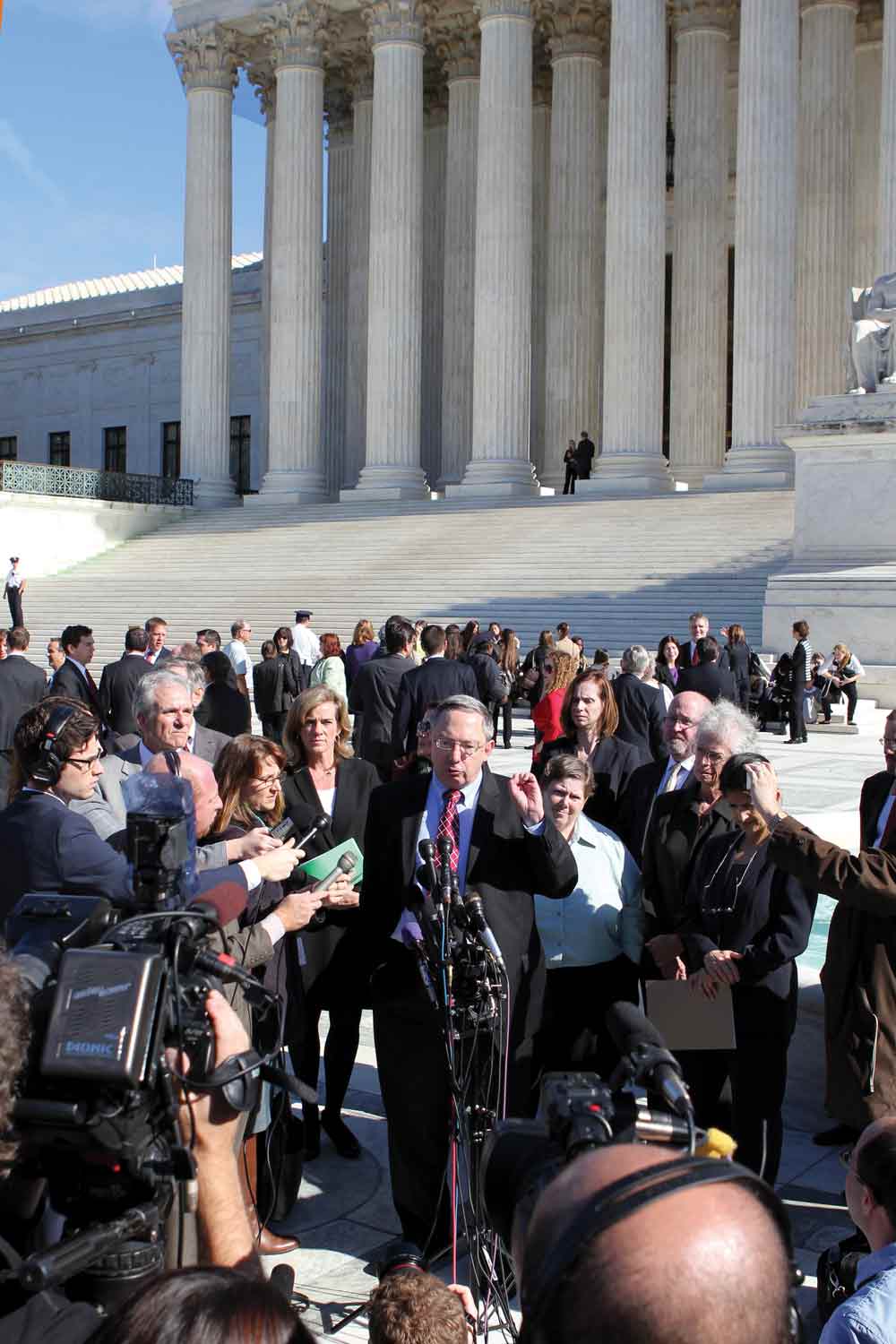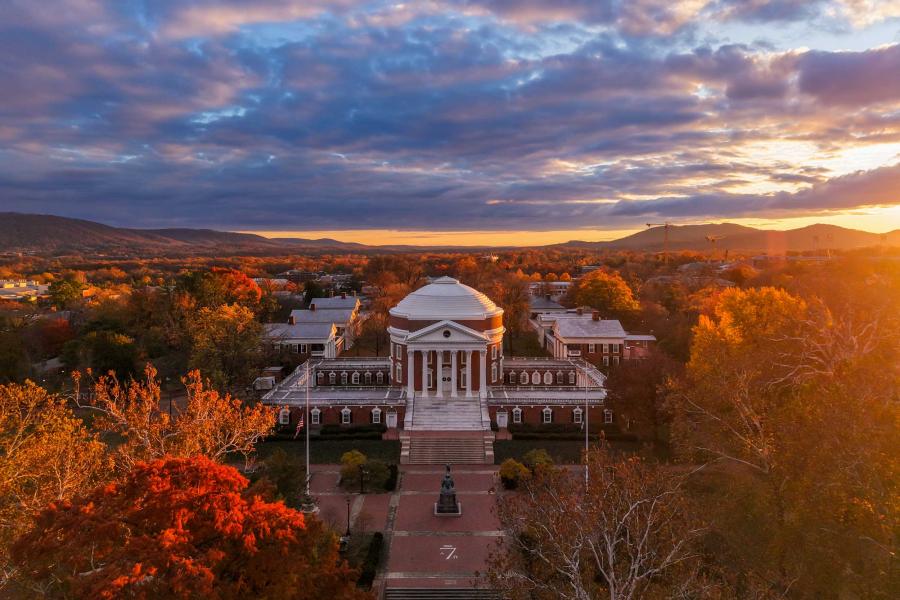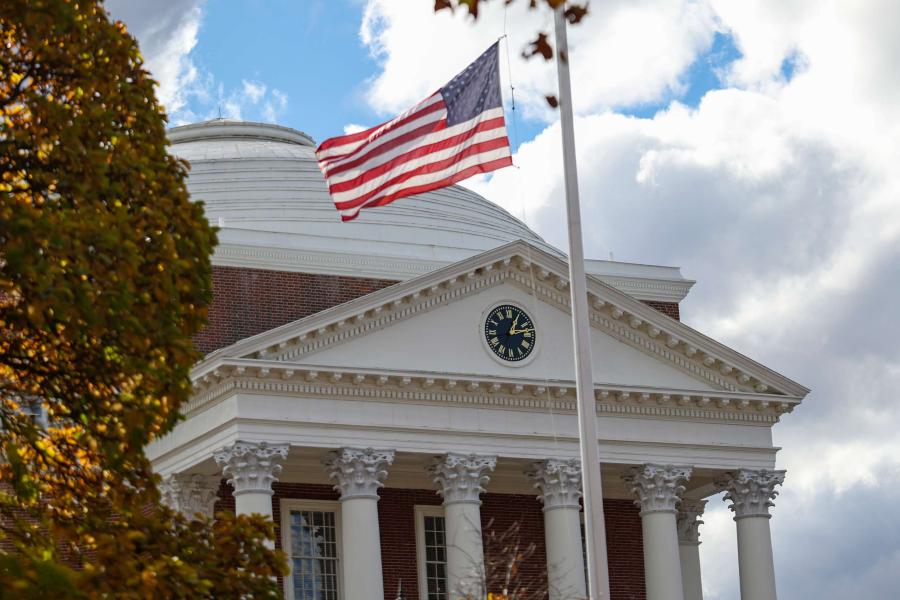Douglas Laycock doesn’t remember all the events surrounding his public high school’s 1963 Christmas assembly – a half-century of appellate litigation, writing and teaching will do that – but he clearly remembers hearing the Christian Nativity story from the Gospel of Luke. And he remembers walking out in protest.
Laycock, who retires in May from the faculty of the University of Virginia School of Law as perhaps the nation’s preeminent expert on religious liberty – and one of its most effective advocates – said an outspoken atheist he was sitting next to helped him take the plunge.
“He said something like, ‘Let’s just leave,’ and I went with him,” Laycock recalled.
The Supreme Court’s big school prayer cases, Engel v. Vitale in 1962 and Abington School District v. Schempp in 1963, had just come down. Those and other Warren Court cases, along with Perry Mason’s television courtroom dramatics, left an impression on Laycock, who grew up in Wood River, Illinois, a blue-collar oil refinery town.
“It was naive, but I thought I was going to argue cases in the Supreme Court and save the world,” Laycock said. “Well, 40 years later I did argue cases in the Supreme Court. I certainly didn’t save the world.”
Laycock will head off to retirement in Austin, Texas, where his sons and his granddaughter live. He retires as the author of a five-volume collection on the law of religious liberty, lead counsel in six Supreme Court cases and the author of 35 amicus briefs filed there, and the leading expert on the law of remedies.
At times he has been the target of both the left and right in the culture wars, and he has represented both sides in court. At the Supreme Court, he represented the Catholic Archbishop of San Antonio and, in another case, Texas parents and students who objected to prayer at high school football games. His work, and a letter of support he co-wrote, built support for the bipartisan Respect for Marriage Act, which codified federal protections for same-sex and interracial marriages while protecting the right of religious organizations not to participate in those weddings.
“I could just as well have been a gay rights lawyer as a religious liberty lawyer,” Laycock mused. “I got pulled into the religious liberty space serendipitously, and of course the gay rights space was well occupied.”
